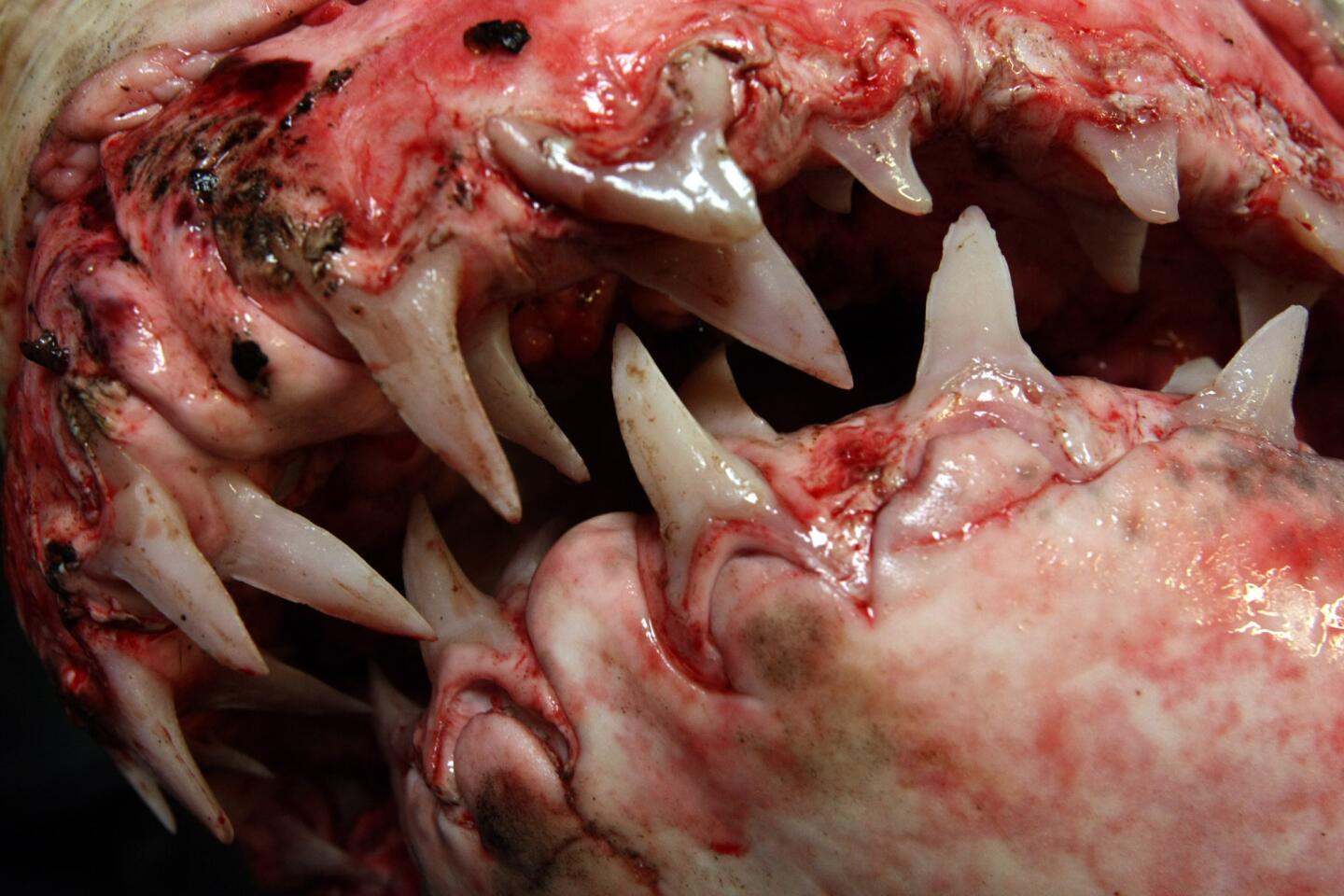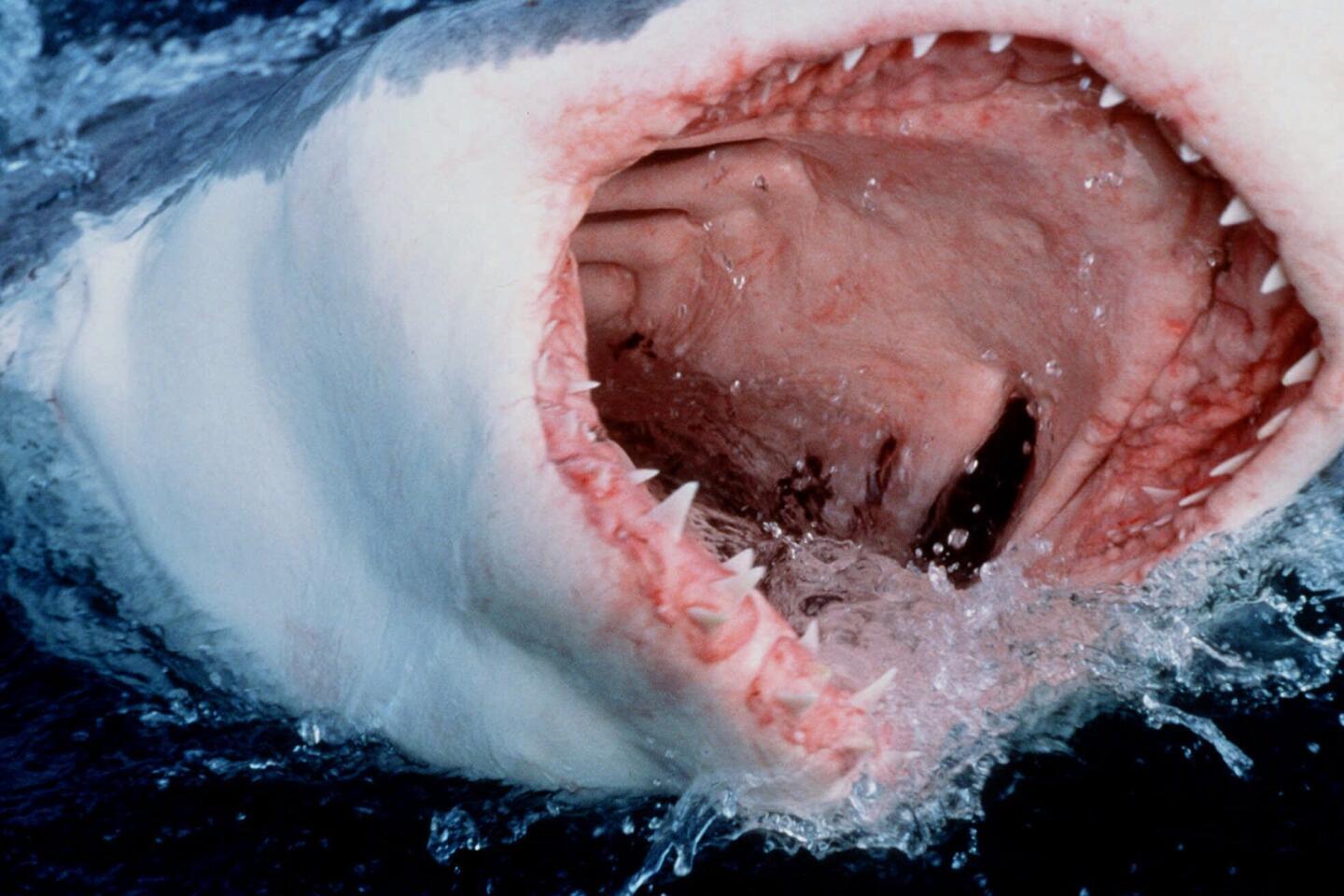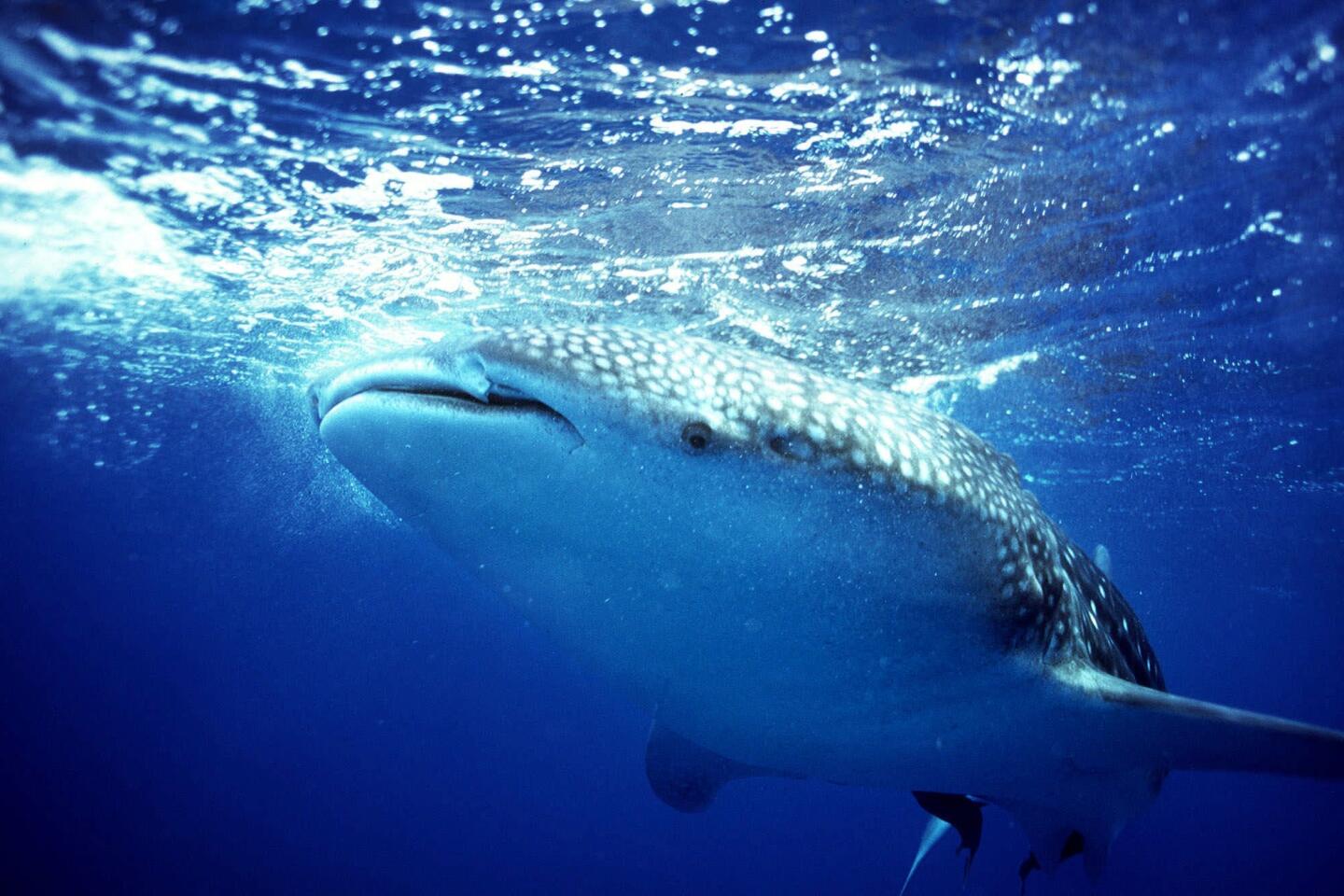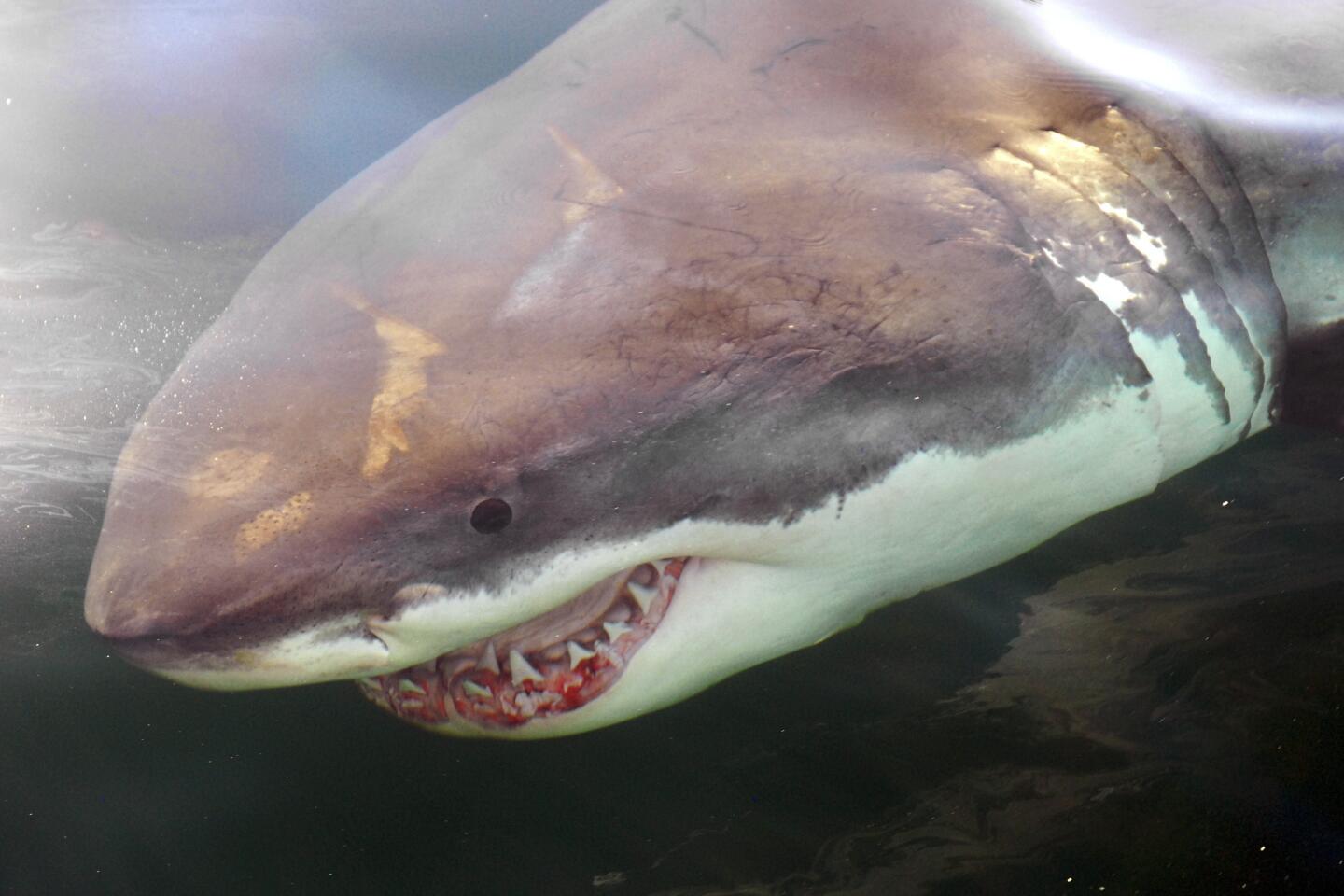6 unprovoked shark attacks along West Coast in 2014, all in California
- Share via
A recent report says there were six unprovoked shark attacks along the U.S. Pacific Coast in 2014. All of them were in California, and all the sharks were great whites.
Four of the attacks occurred in October, one in July and another in December, according to the Shark Research Committee’s recently released 2014 report. Remarkably, in all attacks, only two surfers were injured.
“I am surprised we don’t have more of them,” said Ralph Collier, the shark expert and researcher who wrote the report, which specifically looks at attacks that were deemed not to be provoked by humans.
Last July’s shark attack in Manhattan Beach, for example, was not included. In that attack, long-distance swimmer Steve Robles was bitten by a 7-foot juvenile shark.
The attack, Collier said, was provoked -- not by Robles but by fishermen who hooked the shark near swimmers.
In the six attacks listed in the report, three victims were surfing, two were kayaking and one was on an outrigger.
Based on the size of the bite, Collier believes a great white shark more than 20 feet in length was responsible for both kayak attacks.
“It wasn’t trying to feed,” he said.
Collier said the shark likely knew the kayaks were not food.
In the other attacks, Collier suspect the sharks were much smaller.
According to the report, last year’s attacks along the Pacific Coast increase the 21st century total to 83, which is three times the 20th century average.
Shark experts have authenticated 191 unprovoked shark attacks since 1900 along the Pacific Coast.
“You have to use common sense when you are in their home,” he said.
1) Swim in a group.
1) Stay away from large groups of dolphins and seabirds, which are attracted to the same food as sharks.
2) Don’t enter the water if bleeding.
3) Don’t splash a lot, and keep pets out of the water.
4) Be extra cautious near sandbars or steep drop-offs, which are preferred hangouts for sharks.
5) Avoid waters being fished. In the July Manhattan Beach attack, the shark was hooked and trying to free itself. “He was agitated and was probably biting everything in his way and then the swimmer swam right into the shark’s line,” said Los Angeles County lifeguard Tracy Lizotte at the time.
For breaking news in California, follow @VeronicaRochaLA
More to Read
Sign up for Essential California
The most important California stories and recommendations in your inbox every morning.
You may occasionally receive promotional content from the Los Angeles Times.


















